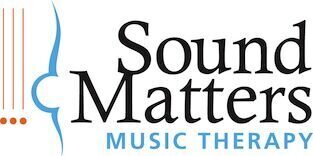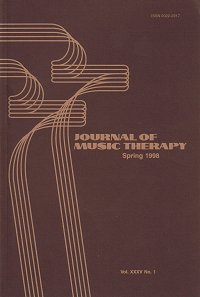Earlier this month, some of my music therapist friends got together for another of our monthly meetings. Unfortunately, I did not attend the meeting because I didn’t feel well. But, at this meeting, everyone (myself included) prepared some thoughts on a music therapy research piece or article of their choice.
The article I chose to read was “Bereaved Parents’ Experiences of Music Therapy with their Terminally Ill Child,” by K. Lindenfelser, D. Grocke, and K. McFerran. The article was published in the Journal of Music Therapy, XLV (3), 2008.
The purpose of the study “was to investigate bereaved parents’ experiences of music therapy with their terminally ill child” (330), and from the study there were five themes that arose: 1. Music therapy was valued as a means to alter the affected persons’ perception of the situation, 2. Music therapy was a “significant component of remembrance,” 3. Music therapy was a multi-faceted experience, 4. Music therapy “enhanced communication and expression,” and 5. Shared perceptions of and recommendations for providing music therapy as a service.
The authors expound upon the concept of emotional bonding between the parents and the terminally ill child, and how music therapy supports such a process. The music therapy provided in these situations had been reported as being “a positive focus for both the child and family at a time when most aspects of life felt daunting” (332).
Also covered was the practice of using music as a legacy for the family to have following the child patient’s death. Ideas for experiences that came to my mind when reading this section were those of songwriting together as a family unit and/or recording a favorite song together.
In the Results section of the article, some data that was collected indicated that “music therapy was one of the only things that allowed [the child patient] to continue to thrive/accomplish/achieve” (337).
One of the parents involved in the study noted that the music that was being used in their sessions made her more emotionally vulnerable. I am not sure from reading in what capacity that parent participated in the sessions. I truly cannot imagine the emotions that are experienced in this kind of situation.
The last piece of the article that I’d underlined when reading was in the Discussion section, where one of the parents described the music therapy sessions as something that allowed her daughter to continue “being a child” (341). I can only imagine the identities medically fragile patients assume, and especially when they’re young, I have to believe the playfulness of childhood is all but lost.
Has anyone else read this piece? Has anyone read anything lately that they really like or dislike?

